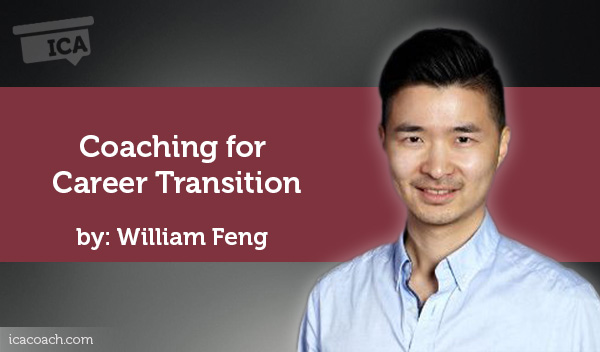
Coaching Case Study By William Feng
(Career and Leadership Coach, UNITED STATES)
This case study is about one of my coaching clients, Amy (not real name to protect anonymity) who worked at a well-known toy company. She was my tutoring student four years ago. She knew I started career coaching a year ago, so she contacted me to discuss her career as she felt she was no longer growing professionally. Since learning was very important to her, she felt unmotivated at work and wanted to explore other opportunities outside her company. She first sought advice from her boss and internal HR teams including HR Business Partners and Talent Development Director. However, she did not feel safe psychologically to bring her authentic self and discuss this problem in detail. At the end of the day, she mentioned that she did not want to stay because the company was not doing well and she was unsure about her future at the company.
I reconnected and met with her to understand her work situation and shared my coaching services including my coaching process, pricing, and what coaching is and isn’t (to set expectations).
Once we contracted with our coaching agreement, we scheduled the second coaching session to meet at a local coffee shop with a bi-weekly cadence. With an assessment-anchored coaching approach, I recommended Amy to complete the Gallup Strengths assessment to explore her strengths and values as a starting point. Our initial engagement was primarily focusing on herself as a leader and helping her to learn more about herself through reflection and learning. As a Gallup-Certified Strengths coach, I administered and facilitated her top 5 strengths conversations. Throughout our 3-month coaching engagement, strengths were the core of our conversations to guide Amy to find her next career opportunity. For example, being aware of my own strengths (i.e., Futuristic, Maximizer, Connectedness, Positivity, and Activator) as a coach, I supported Amy to envision the future, stay positive with appreciate inquiry and powerful questions, and move forward with actions and accountability.
Even though strengths coaching is one of my key competencies as a coach, it was not the only intervention or coaching approach I used to support Amy. For example, after our first two sessions, I discussed with her regarding her immediate and 6-month career goals based on our coaching agreement. She mentioned that she wanted to leverage her strengths in her new job and explore what the “new job” looks like. Throughout our 3-month coaching engagement, I created a safe, supportive environment that produced ongoing mutual respect and trust. I had also leveraged my education from organizational psychology to observe any covert dynamics (e.g., body language, eye movement, facial expression, intonation, word usage, and emotions) happening during our coaching conversation. I then reflected back to Amy on these observations for sense-making and client’s self-reflection for further discovery.
In terms of processes, we established a coaching agreement at the beginning of each session to define the desired outcome for the session with her long-term career goal in mind. In each session, I actively listened to what she said without judgement, and asked powerful questions (e.g., what is it about the importance of exploring new career opportunities now? What’s missing?) to explore her strengths, values, challenges, and opportunities with direct communication and curiosity. In terms of structure and accountability, we used Google Sheets to document and capture any insights coming out from our coaching engagements. The sheets were co-created by both Amy and myself and served as a single source of truth for an ongoing support and accountability tool.
With the new awareness during coaching, Amy often responded with an “ahha” moment showing on her face. I believe the coaching had been effective because she achieved her goal contracted at the beginning of our coaching relationship, as well as the desired outcome after each session. Amy emailed me after she landed a new job, “I could NOT have gotten to this point without your support and guidance. You were instrumental in helping me think outside the box and really identify who I am as an individual. Thank you for playing a key role in shaping my future!” Since she landed a new job at a non-profit organization that aligned well with her strengths and passion, this served as a shred of evidence that her coaching goals had been met and the coaching was effective and successful.
If I could approach this problem (i.e., career transition) again, I will not change my overall approach as described above; however, I would like to enhance my coaching services by the following actions:
With regards to my own learning from this experience, I learned three key lessons as a coach:
I am grateful for the opportunity to learn from ICA and apply my learnings to coach and support other leaders to be the best version of themselves. Thank you, ICA!